SONS OF DEWITT COLONY TEXAS
©2000-2023, Wallace L. McKeehan, All Rights Reserved
Lake Weir High Class
of 62---Index
Archival News Articles
Frank
Smith ('61) Appointed to Marion County Agriculture Hall of Fame 2014
All
State Lake Weir Pitcher Loren Abshier: Belleview Sports Bar Icon
(Reprinted with permission from the Voice of South
Marion, Sept. 12, 2012)
An Old
Crank (Al Burt's Story of the old Hwy 42 Ocklawaha River Bridge)
Chris Nunley ('64) and The Royal Guardsmen
The Belleview Chronicles (1995) by Charles Pennington
('67)
The Classic Librarian: Ms. Dowdey
2007: Site visits to Coach Pfeil and Master Math Teacher George Cope
The following is reprint
of a story written by Al Burt, longtime
Miami Herald journalist who wrote about the disappearing old Florida "cracker"
culture. The story is set in the Lake Weir area and is about the mother, Tennie
Steele, and boyhood home of '62 graduate Rayburn Steele on the Starke's Ferry Bridge, Hwy
42 over the Ocklawaha River across from Nelson's Fish Camp (boyhood home of Jimmy Hunt,
Class of '61).
An Old Crank
When a boat whistled, Tennie Steele put down her crocheting and went to
work. She walked out to the middle of Starkes Ferry Bridge, inserted a long handle into a
slot and began cranking. "Hard?" she said. "You ought to try it. Sometimes
that thing is impossible." But the short, trim grandmother leaned into the job, and
slowly the bridge swung open and cleared the channel.
The widow Steele, when I talked with her in 1978, had been a
bridgetender for 18 years on one of the relics of Florida's transportation system—a
manually operated swing bridge across the Ocklawaha River where it met State Road 42 in
Marion County. All that time she had lived in a white frame bridgetender's house that
perched behind the guardrails on what amounted to an island. She could fish off the back
porch. Her best memories were made right there at this site of an old ferry-crossing that
served Confederate major Thomas Starke's plantation in the 1880’s. As permanently as
a human can, she built her life around the river. Her husband, who died in 1969, planted
lemon and tangerine trees along the banks, and each year they were full of fruit. She
planted roses. Her children grew up in this tiny six-room house where she finally lived
alone.
"Lord, I love this river, and I hate to leave it," she said.
"But they're going to tear down my house." Mrs. Steele knew the old hand-cranked
bridge could not last forever. Nevertheless, she had been stunned the previous spring when
state officials said she could stay no longer than six months more, perhaps less. Plans
called for a high-level bridge that would not need a tender, and until that got built the
state would depend on nonresident tenders working reduced hours. In a nation of
easy-riding nomads, where people regularly move from job to job and city to city and mate
to mate, she believed in the old rule that a person should make lasting commitments to
achieve the sense of direction that makes life bearable. "There'll always be
changes," she said, mentally picking her path into the future. "Life changes
whether you want it to or not. But you can find a way and a reason. One thing leads out of
another. I'm thankful I could carry on as long as I did. I was 65 this year, and I can get
retirement. They offered to move the house for me but I told them no. The place is full of
termites. I'll miss the fishing, but it seemed like they were always biting best when I
had to work and couldn't take out the boat. "Besides, that old crank is so hard
to turn. I don't dread leaving as bad because of that. I'll just move on up to Anthony
[also in Marion County], where my son lives, and I'll be fine. I can sew and raise flowers
and maybe go fishing occasionally. I'll have plenty to do, just like I always have."
The Steeles made their way to Starkes Ferry from Alabama in 1953.
"We were farmers," she said. "We never did public work." In 1960 a
friend recommended her, and she readily took the job and the little state-owned house that
went with it. "Made $65 a week to start. Paid $25 a month rent and they furnished
utilities," she said. "It was six days a week and 24 hours a day then. Couldn't
even get away to go to school meetings. But I loved it. Just suited me fine. Sometimes a
month would pass without having to open the bridge—has to be a houseboat or something
like that. But sometimes two or three'd come in one weekend. It wasn't too difficult, but
you had to be alert." Starkes Ferry, a rural community between Umatilla and
Weirsdale, changed little in Mrs. Steele's 18 years there. The same two fish camps sat on
either side of the river, but they got a little busier and a little fancier. There were
fewer campsites and trailers in the early days, but even in 1978 there were not so many.
Her salary rose to $600 a month and work time fell to three-and-a-half days a week (42
hours), with a relief bridgetender (also a woman) handling an equal shift from a small
office next door.
Most of the boat traffic could go under the bridge without her
services, but the highway traffic had increased. Barely a yard from her front door the
autos whizzed by in two opposite-bound lanes closely bordered by heavy guardrails which
she could reach from her front door. "The traffic gets to be a problem," she
said. "Once, a truck loaded with oranges hit the house. Cleaned out all but the top
and bottom of two rooms, furniture and all. Scattered oranges all over the house. I was
outside fishing. "Another time my grandson was here and we had been fishing. I was
out on the back porch cleaning the fish when he came back and said, 'Granny, a box of corn
fell off a truck on the road'. I looked out there, and a trailer had hit one of the
guardrails and scattered corn all over everywhere. All that went with the job. I had to
keep the road clear. You'd be surprised how many people stopped their cars right on the
bridge to look at the alligators—we've got a 14-footer that hangs around out
there—or to climb down that fence and pick some of my tangerines. Had to keep 'em
moving."
She sat quietly in her living room, listening to the pendulum clock
ticking, looking at a mounted bass on the kitchen wall, the framed pictures of her
grandchildren and the curtains standing out in the river breeze, and sighed. "It
wasn't perfect but Lord knows I'm going to miss it," she said. "If I didn't have
another place to go, I'd put me a trailer down there on the river and stay right on."
One of Florida's last hand-cranked bridges was passing into history.
Tennie Steele followed reluctantly, for she was leaving a life behind.
May 21, 1978 by Al Burt, reprinted in The Tropic of Cracker (1999),
University of Florida Press. |
Chris
Nunley ('64) and The Royal Guardsmen Reunited (Video)
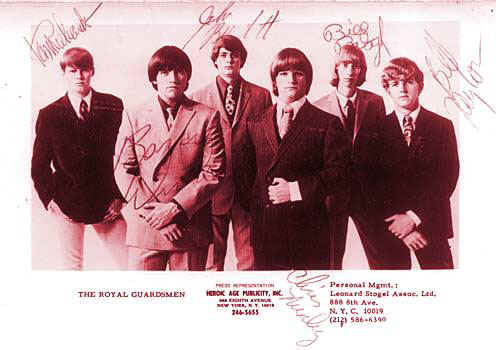
Story of
the Royal Guardsmen
Librarian Ms. Julia Yancey
Dowdy Hogenboom Turns 101
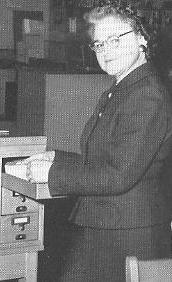 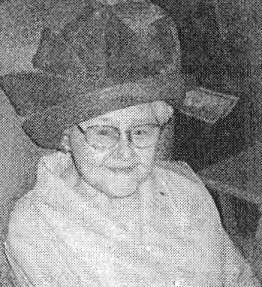
An article in the Ocala Star Banner of 18 Feb 2007 announced that
Ms. Dowdy celebrated her 101st birthday on February 16 with friends, cake and ice
cream. She was born in Charlotte, NC. Ms. Dowdy was the librarian at Lake Weir
High School and the wife of Reverend Hogenboom, pastor of the Weirsdale Presbyterian
Church. The article related that her secret to long life is strong faith and a
healthy outlook. [I suspect a good set of genes also contributed, does anyone
remember the Dewey Decimal System?--E.W.] (Ms. Dowdy
passed away at age 102 in 2008; information provided by Don Phillips)
Spring
2007: Ole Coach Pfeil and Master Math Teacher George Cope:
Still Marion County Farmers After All These Years.
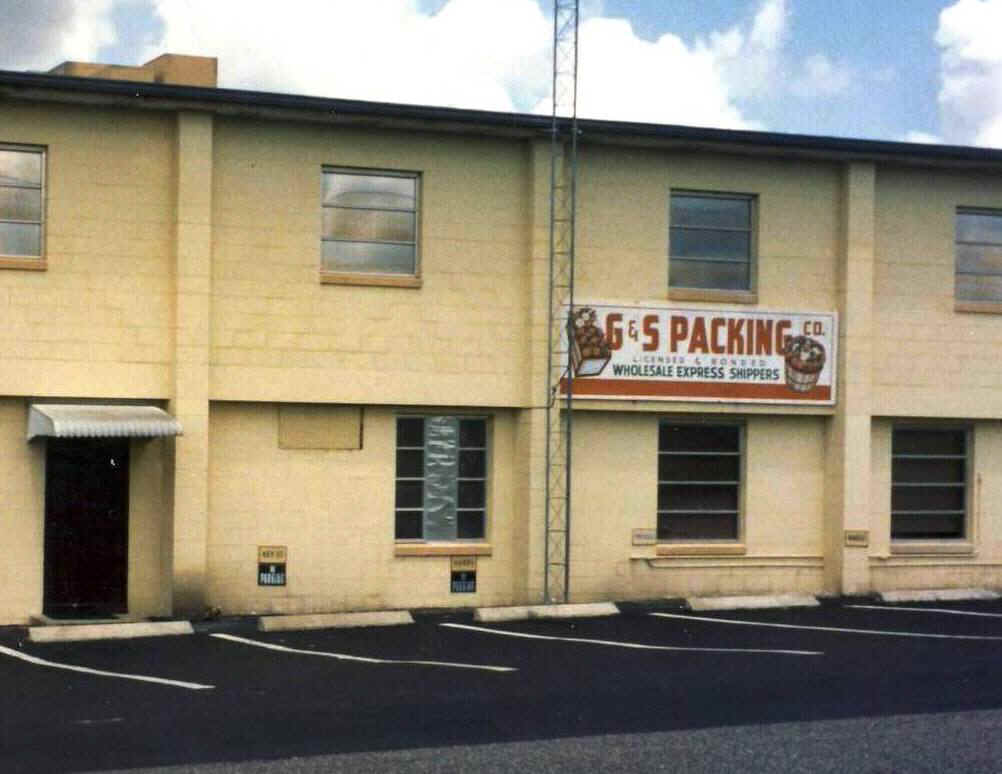 On one
of their periodic hunting and fishing forays back to the Sunshine State from their homes
on Gulf Coast Texas and the Rocky Mountains, Einstein Wally (McKeehan) and Real Bubba Ray
(Steele) pulled Big Dog (Don) Phillips out of church on a Sunday morning and held a
mini-reunion breakfast at a local diner out toward Silver Springs in Ocala. On the
spur of the moment they decided to do a historic (nostalgic) auto tour of the Lake Weir
area. They covered most of the historic Belleview and Weirsdale landmark sites with
perfect recall of events that happened there, like the ole Belleview Pit (later Dairy
Queen?), Smith Grocery parking lot and the tree where the Belleview Chief slept on his
watch, the Polish poultry farm where EW got his first Belleview job shoveling and bagging
3 ft thick chicken manure for $.50/hr, the site where EW got a borrowed pink Cadillac
convertible stalled on the tracks in Belleview, the ole Summerfield railroad station where
the mostly black super athlete lighter stump and pulpwood workers whose sons and daughters
are now likely football and basketball stars benchpressed stumps and logs like nothing,
circling the lake with uncountable and unprintable stories of events at each landmark, the
ole Weirsdale packing house that provided us employment and gas money during citrus
season, the G&S building where ole Boat's
office is now empty and the Ocklawaha River Bridge out on Hwy 42 where Bubba Ray grew up
across from Nelson's Fish Camp (where Mel Tillis played guitar with ole man Buck Hunt
while Bubba listened). On one
of their periodic hunting and fishing forays back to the Sunshine State from their homes
on Gulf Coast Texas and the Rocky Mountains, Einstein Wally (McKeehan) and Real Bubba Ray
(Steele) pulled Big Dog (Don) Phillips out of church on a Sunday morning and held a
mini-reunion breakfast at a local diner out toward Silver Springs in Ocala. On the
spur of the moment they decided to do a historic (nostalgic) auto tour of the Lake Weir
area. They covered most of the historic Belleview and Weirsdale landmark sites with
perfect recall of events that happened there, like the ole Belleview Pit (later Dairy
Queen?), Smith Grocery parking lot and the tree where the Belleview Chief slept on his
watch, the Polish poultry farm where EW got his first Belleview job shoveling and bagging
3 ft thick chicken manure for $.50/hr, the site where EW got a borrowed pink Cadillac
convertible stalled on the tracks in Belleview, the ole Summerfield railroad station where
the mostly black super athlete lighter stump and pulpwood workers whose sons and daughters
are now likely football and basketball stars benchpressed stumps and logs like nothing,
circling the lake with uncountable and unprintable stories of events at each landmark, the
ole Weirsdale packing house that provided us employment and gas money during citrus
season, the G&S building where ole Boat's
office is now empty and the Ocklawaha River Bridge out on Hwy 42 where Bubba Ray grew up
across from Nelson's Fish Camp (where Mel Tillis played guitar with ole man Buck Hunt
while Bubba listened).
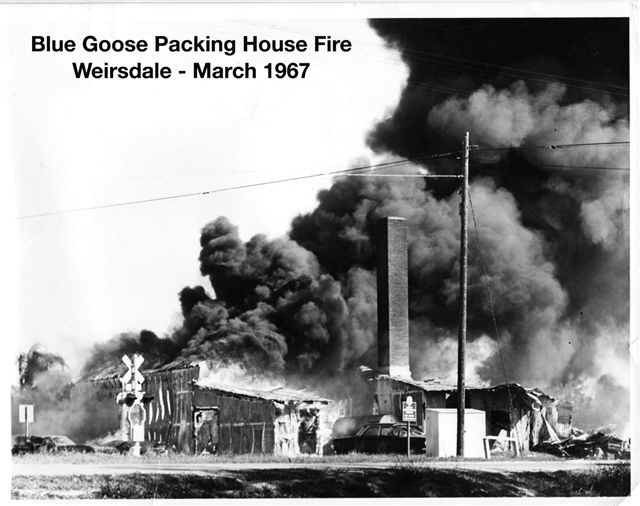 We caught Mr. Cope at home by accident who was as fit as ever among his
orange groves and beehives on the lake. Finally we caught up with Coach Pfeil on his
impressively lush multi-acre truck farm in Ocala despite his recent ailments that he
doesn't seem to let bother him. He maintains the farm (with the help of his son's
family) and a roadside stand on the "honor" system. Knowing the ole Coach,
we joked that he probably has a hidden video system over the stand monitoring activity
from his easy chair and widescreen Sony TV in his modest two room place on the
property. Big Dog and Bubba Ray grilled the ole Coach on the various athletes he
mentored over the years both at Lake Weir and in south Florida. His best stories
were of those he personally had influenced, both the individual and their families, to
persist in school with passable grades to play football. In the end, he admitted
that "Grumpy" Chapin was the best running back he ever coached at Lake Weir, if
not in his career. [Photo: Site of the historic Weirsdale packing house
that according to the Ocala Star-Banner was used for storage and ignited by a kid playing
with matches in '67. The view in '62 would be down the tracks from either Denson's
Grocery or Phillip's restaurant/drugstore and Stormant's Barber Shop. The Blue Goose
was only one of many packing houses over the years in Wiersdale, one of the older style
operations when citrus was crudely crated. Largely because of efforts of the Scales
family who are still in business today through G&S above (2010), Weirsdale was a
center of the higher class gift box packing shipped all over the world. At one time
or another there were the Blue Goose, G&S, Douglass' and Ehler's packing houses.
The packing houses especially during the winter citrus harvest months were a source
of bustling activity and seasonal income for particularly spouses and kids to get the
harvest packed and out to the world. The women did the demanding careful packing and
gradidng while the boys did the heavy loading. Ole Bubba Ray Steele once loaded a
box marked Queen of England which he handled with special care.] We caught Mr. Cope at home by accident who was as fit as ever among his
orange groves and beehives on the lake. Finally we caught up with Coach Pfeil on his
impressively lush multi-acre truck farm in Ocala despite his recent ailments that he
doesn't seem to let bother him. He maintains the farm (with the help of his son's
family) and a roadside stand on the "honor" system. Knowing the ole Coach,
we joked that he probably has a hidden video system over the stand monitoring activity
from his easy chair and widescreen Sony TV in his modest two room place on the
property. Big Dog and Bubba Ray grilled the ole Coach on the various athletes he
mentored over the years both at Lake Weir and in south Florida. His best stories
were of those he personally had influenced, both the individual and their families, to
persist in school with passable grades to play football. In the end, he admitted
that "Grumpy" Chapin was the best running back he ever coached at Lake Weir, if
not in his career. [Photo: Site of the historic Weirsdale packing house
that according to the Ocala Star-Banner was used for storage and ignited by a kid playing
with matches in '67. The view in '62 would be down the tracks from either Denson's
Grocery or Phillip's restaurant/drugstore and Stormant's Barber Shop. The Blue Goose
was only one of many packing houses over the years in Wiersdale, one of the older style
operations when citrus was crudely crated. Largely because of efforts of the Scales
family who are still in business today through G&S above (2010), Weirsdale was a
center of the higher class gift box packing shipped all over the world. At one time
or another there were the Blue Goose, G&S, Douglass' and Ehler's packing houses.
The packing houses especially during the winter citrus harvest months were a source
of bustling activity and seasonal income for particularly spouses and kids to get the
harvest packed and out to the world. The women did the demanding careful packing and
gradidng while the boys did the heavy loading. Ole Bubba Ray Steele once loaded a
box marked Queen of England which he handled with special care.]
SONS OF DEWITT COLONY TEXAS
©2000-2023 Wallace L.
McKeehan, All Rights Reserved |




